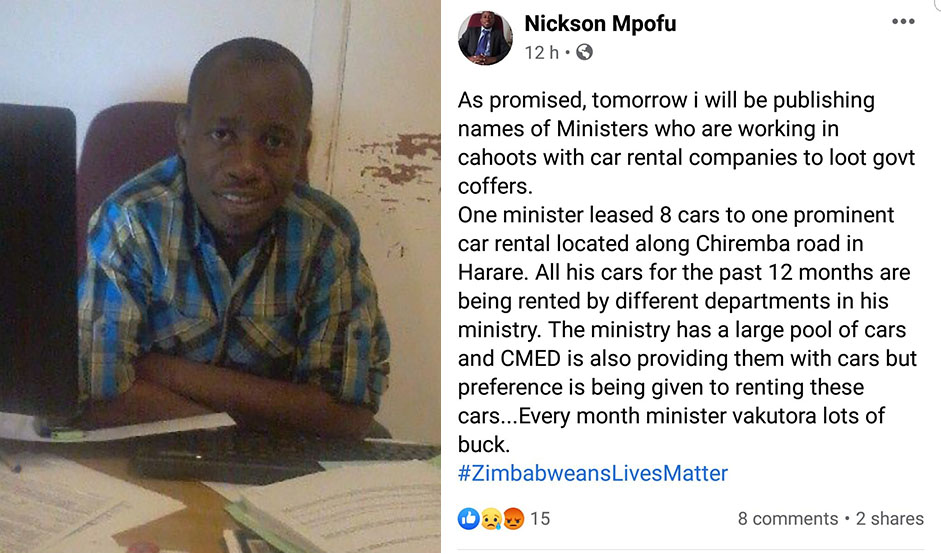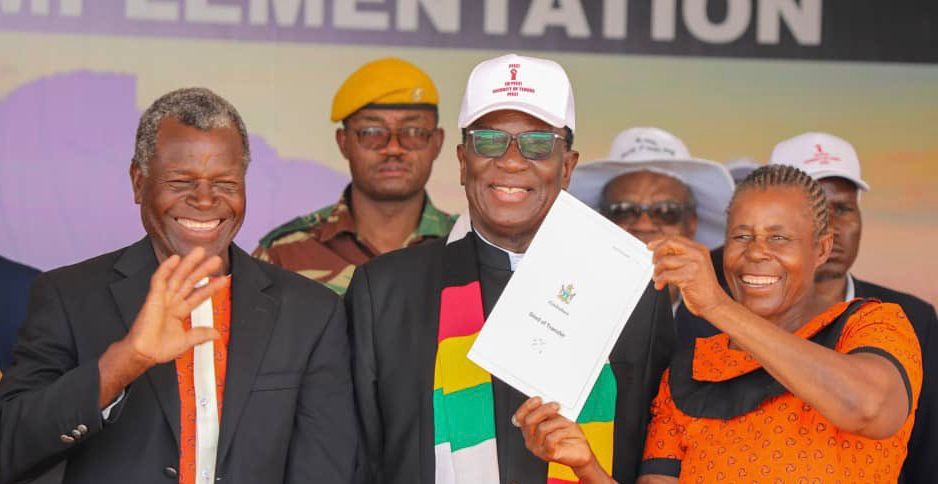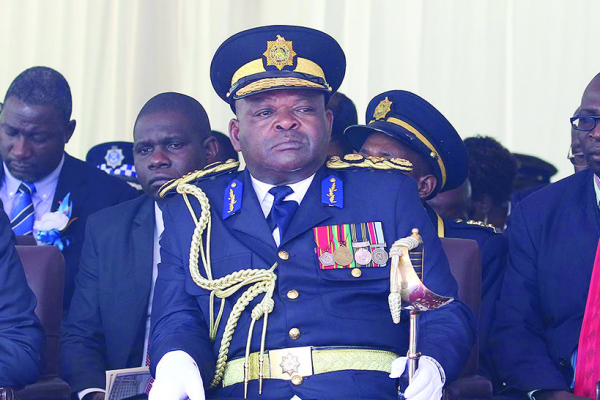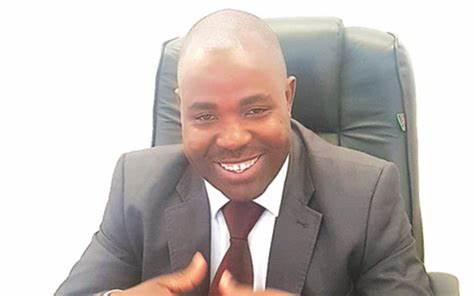HARARE – In the morning of September 1, I wrote the following on Facebook:
“As promised, tomorrow I will be publishing names of ministers who are working in cahoots with car rental companies to loot public coffers. One minister leased out eight cars to one prominent car rental company located along Chiremba Road in Harare. All his cars are being rented by different departments in his ministry. The minister has a large pull of cars and CMED is also providing them with cars but preference is being given to renting these cars (owned by the minister). Every month minister vakutora lots of buck #ZimbabweanLivesMatter.”
My post excited quite a discussion, and anticipation as well from my friends on Facebook because the car rental company in question – Impala Car Rental – was in the news at the time after one of their vehicles was used in the abduction and torture of university student Tawanda Muchehiwa in Bulawayo.
I had received information from a reliable source that Zanu PF ministers, and some other connected individuals, are leasing out their vehicles to car rental companies like Impala. The same individuals then collude with civil servants in charge of procurement in their departments to rehire the same vehicles to cover shortfalls in their ministries.
How companies like Impala work is that while they may have their own pool vehicles, they also take vehicles from individuals for onward leasing. It is possible that if you left your vehicle with them, they can call you at the end of the month and say your vehicle was not hired out, so you have not made money that month.
This scam, however, works in such a way that the said ministers and other connected individuals who may be spouses of powerful people ensure that their vehicles are always hired out.
Typically, the charges include a fixed daily cost of hiring out the vehicle – say US$200. The first 100km are free, after which the customer pays US$1 for every kilometer travelled.
It is a scheme which has guaranteed rich pickings for these ministers to a point that CMED, the state company responsible for maintaining the government fleet and which should be doing the hiring of vehicles to cover any shortfalls in government departments, is now seeing its cars rejected in favour of vehicles from hire companies like Impala.
At the end of each month, the ministers, senior civil servants and other connected people are collecting small fortunes from milking the Zimbabwean taxpayer.
You would imagine auditors would unravel this, or at least the Zimbabwe Anti-Corruption Commission would take an interest, but this has not happened. The corruption is brazen, and I have no doubt that when properly investigated, #Impalagate will expose some of the most systematic looting of government coffers by those who took an oath to, among other things, safeguard public finances.
So, back to September 1. Much of my day passed off uneventfully.
Sometime after 9PM, however, I was on the phone talking to a friend in the United Kingdom when I heard a knock on the door. He suggested I drop the phone and check.

I looked out through the window on the road at the front and there was no vehicle there. So I asked who it was, thinking it was perhaps one of my neighbours in Chitungwiza where I live.
After enquiring who was at the door, I heard male voices saying “arimo” (he’s there). One of them spoke.
“Police! We need to ask you a few questions, open up.”
“Which police station,” I asked?
They pretended not to hear that question.
“We just need to talk, and then we will leave.”
I offered to follow them to the station in the morning. The dialogue had ended. They started kicking the door trying to break it. I knew I was in a lot of trouble.
My wife works in Bulawayo, and I live with my son who is four and my sister’s child who is eight years. The disturbance at the door frightened them, and the young one started crying.
As the door kicking was going on, one of the men threatened to break a window pane and throw a teargas canister inside to smoke me out. The determination to force me to come to that door, and their willingness to suffocate my family left me in no doubt these men meant business, and they were not here for a chat over a cup of tea.
Out of options, I opened the door. As I did, five armed men stormed the house and immediately pinned me down. I was handcuffed almost immediately.
They dragged me out, almost lifting me because I’m quite small. They escorted me behind our house where they had parked their vehicle, which I recognised as a white Nissan Caravan.
Inside the vehicle there were no seats at the back. They threw me in, and then four of the men sat two apiece either side of me.
They said they were taking me to Makoni Police Station, but they were driving on the main road to Marondera. Moments later, I observed that we were going past the Makoni turn, and I asked them if there had been a change of plans.
One of the men then told me our house falls under Dema Police, so that’s where we were going. That got me concerned. I had heard horror stories of Zimbabweans who had been abducted and I never imagined one day it would be my turn – and yet here I was, at night being driven to an unknown destination surrounded by men claiming to be the police, but who clearly lack all the professional courtesies of the real police.
I braced myself. I had one last opportunity to save my life, I thought. If the men were telling the truth that we were going to Dema, then we would be passing a tollgate and there normally are police officers there. My plan was to scream as we got there, attracting attention.
But some 100 meters from the tollgate, my heart sank when the vehicle turned left on a dirt road normally used by vehicles avoiding paying at the tollgate.
They drove on up to what I thought were the banks of the Hunyani River. We never crossed the river because there’s no bridge.
The vehicle came to a stop and they opened the back door of the Caravan. They pulled me out and chained my leg to the tow bar on the rear bumper. The beatings started almost immediately. They were repeatedly striking me under the feet using baton sticks.
In-between the beatings, there would be momentary pauses to ask me questions. Any “wrong” answers or “I don’t know” invited more severe beatings.
The men wanted to know who my sources were in government for the things that I write on Facebook. I told them I don’t have a source in government. Much of the stuff I put out there, I said, I gleaned from Twitter.
How many times had I been to the United States embassy?
They also told me they had information that I was part of the organisation of anti-government demonstrations that were planned for July 31. They wanted to know where we held planning meetings, and which places we intended to bomb.
I had nothing to do with the July 31 protests planning, I have never been to the United States embassy and I have never seen a bomb of any kind with my naked eye. Yet here I was, any attempts to answer this honestly would just increase my pain.
I couldn’t make up stories in the moment, so I told them my truth: “I don’t know what you are talking about.”
They insisted I was lying. And as if playing a video game, I had unlocked the next level of brutality. I was now being punched and clapped while one of by captors kept at the task of delivering targeted violence to the soles of my feet.
They got tired of beating me, eventually. It was now after midnight.
They forced me to give them my phone password and they stated going through it. They had a set of numbers they came with, which they would dial and if that number appeared on my phone, I had to explain my dealings with that person.
“Job Sikhala is a terrorist, why do you have his number?”
“Is he the one that was sending you to make petrol bombs?”
They also had Godfrey Tsenengamu’s number, and when they couldn’t find it on my phone they asked anyway if I had ever met him.
I had WhatsApp numbers for the BBC and CNN, the ones they display on screen through which viewers can send comments or news tips. They demanded to know what I had reported to the BBC and CNN.
After some time, they stopped and moved to the front of the vehicle.
I was almost freezing now. They had taken away my jacket. My comfort was not their concern.
Then, for the first time, the driver came out of the vehicle. He came to the back where I was and told me his mother is a ‘Mhofu’ (Mpofu totem), and so I was like an uncle to him. He told me he was not part of these men but had only been hired to drive them.
“Politics is a dangerous game, these guys can kill you,” he told me. “Just give them the information they want.”
Then asked me which football teams I support, and where my rural home is. I told him I come from Zvishavane. He said his relatives had lost jobs when Shabanie Mine closed down, and he began telling me stories about working as a driver transporting illegal gold panners in Zvishavane.
In between these personal stories, he would be asking me identical questions as those of his colleagues.
After a while, he realised I wasn’t giving much information. The one he wanted anyway.
“You can’t be helped,” he said resignedly. Like Pontius Pilate, he was washing his hands of me and handing me back to his vicious colleagues.
The four men returned, and they were now very angry and vicious. They stripped me naked.
They said on Facebook I pretend to be a strong man, and it was now time to prove that. One of them then started pulling my testicles and penis with his bare hands. The pain was nothing I have felt before. I screamed.
“You’re killing me,” I cried out.
“Yes, we want you to die,” came the reply.
One of them told me when they had done killing me, I would be pushed down one of the burrows on the banks of the river and no-one would ever find me. I had no reason to doubt him – no-one knew where I was.
The beatings resumed, this time with a little more intensity. The beating under the feet was more sustained this time, and the reason for that I was told is that if I survived, I would have no pictures of injuries to share on social media, so no public sympathy and few would believe I had been tortured.
Then something quite bizarre happened. One of the men started defecating very close to our position, visibly annoying his friends who enquired about his mental state.
I would soon learn of my starring role in cleaning up the mess, literally. The man who had just did the number two said I should pick up his faeces with my hands and go dispose of them further away.
I was uncuffed. I began walking towards a nearby tree intending to get some leaves which I would use to handle the faeces, but I was quickly ordered to perish that thought: I would be using my bare hands.
I hope never to suffer such humiliation for the rest of my life.
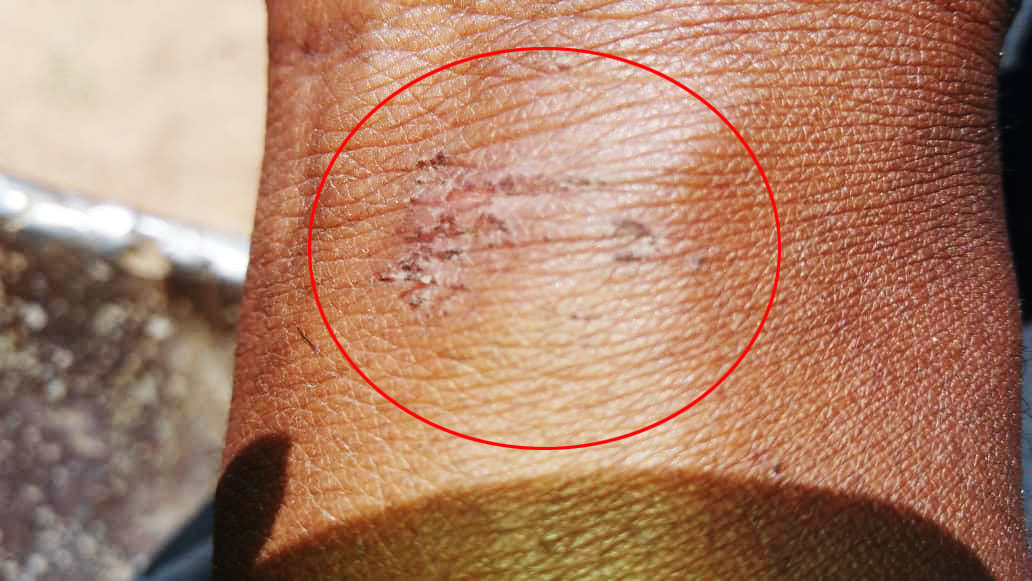
For much of the night, the men had been using their phones to try and talk to someone they referred to as “boss”, but the calls were not being answered. I figured that my fate would be decided by the “boss”.
Then, eventually, at around 3AM, one of them got through to the boss.
“He doesn’t have any information, it looks like he’s just an overzealous guy,” one of my captors reported back to the “boss”.
One of the men took out a bottle of water and helped me wash my hands. We would be getting back in the vehicle and they didn’t want to suffer the smell of their colleague’s faeces, he said.
Everyone back in the vehicle, they started driving as if going back to Chitungwiza. Then suddenly, the vehicle stopped and I was literally kicked out and they sped off.
Grateful to be alive, I worried that they might change their minds and return for me. Staying at the same location was a dangerous thing to do, I reasoned, and following their direction to get to the main road was no option either.
I reasoned I had to walk back towards the Hunyani river, which I doubted they would expect me to do. There was a problem. There was a burning sensation under my feet and I could barely stand. I discovered, however, that the pain was slightly more bearable when walking using just my heels.
I found a thick bush and took cover until the break of light at around 5AM. I willed myself on until I got to the main road and flagged down a car. I had no money. I explained my situation very briefly and the driver said “jump in”.
The driver dropped me off close to my home where I walked in to find relatives and neighbours sick with worry.
Relatives drove me to the police station at Dema to make a report. I was given a reference number called an ‘OB’, and advised that an investigating officer would be assigned the case and would get in touch.
After the police report, I was seen by a doctor who observed that my testicles were swollen and I had injuries to my wrists from the handcuffs. I was prescribed medicines and some general exercises to get back to wellness.
One of the first things I did when I finally returned home was to delete my Facebook posts making reference to the car hire scandal. I was afraid they would return.
After some quiet reflection, and talking to friends, I thought Zimbabweans should know what happened to me. Silence encourages the tormentor, never the tormented, Elie Wiesel once said.

